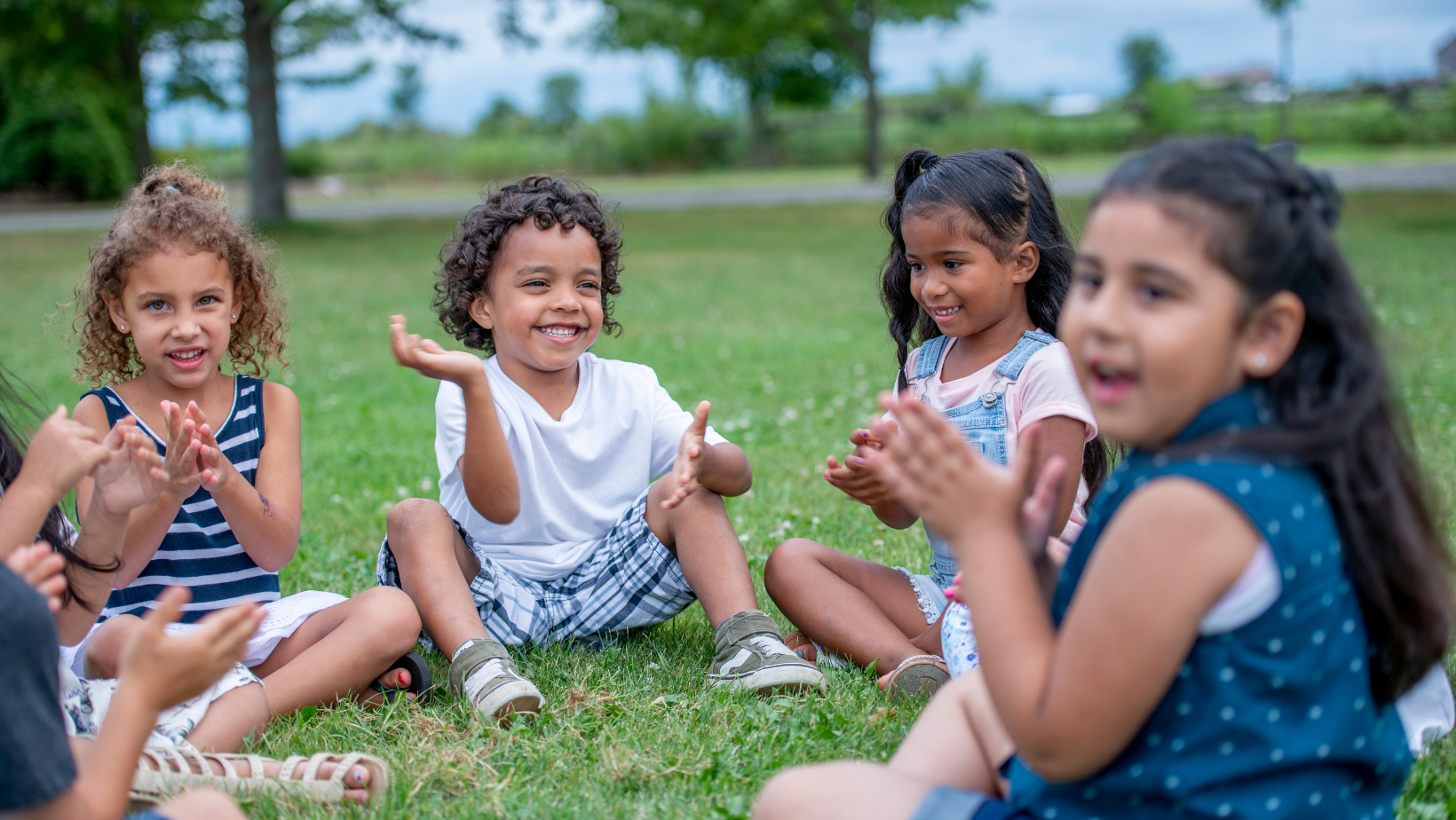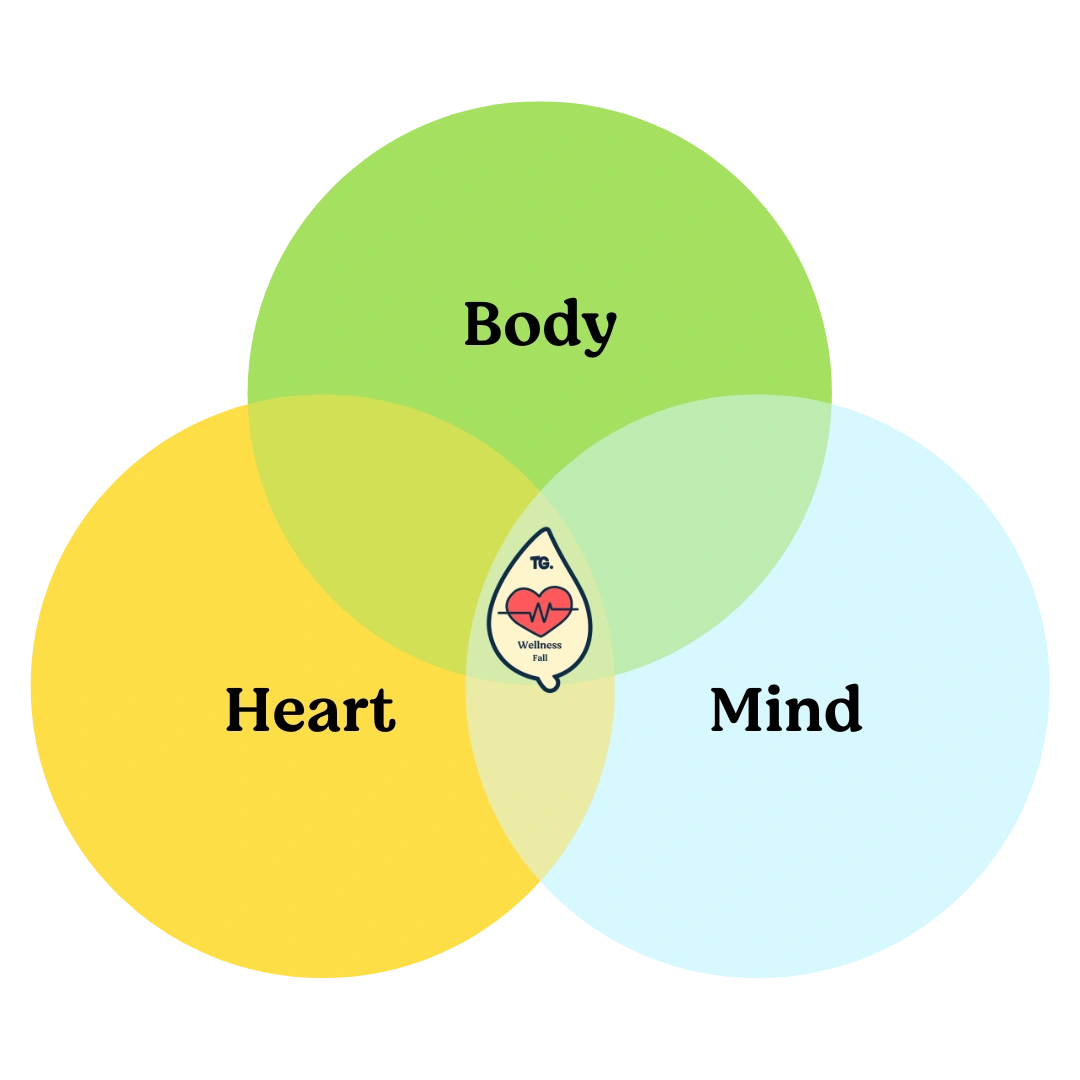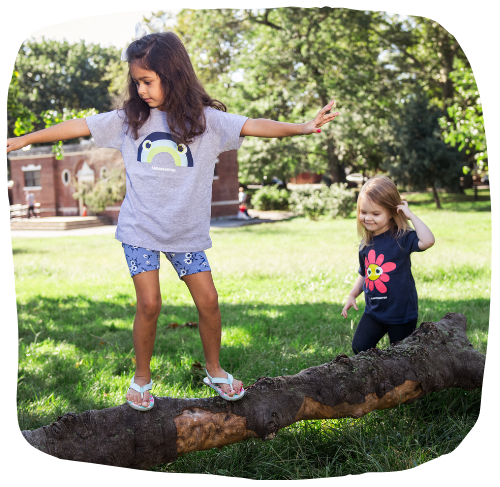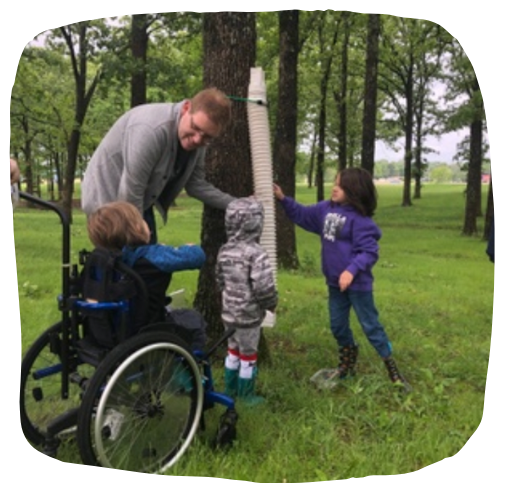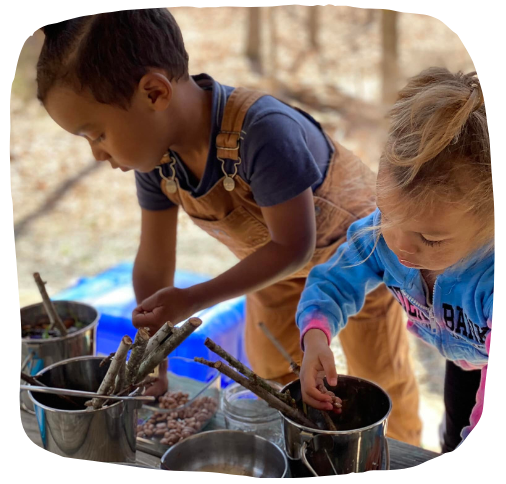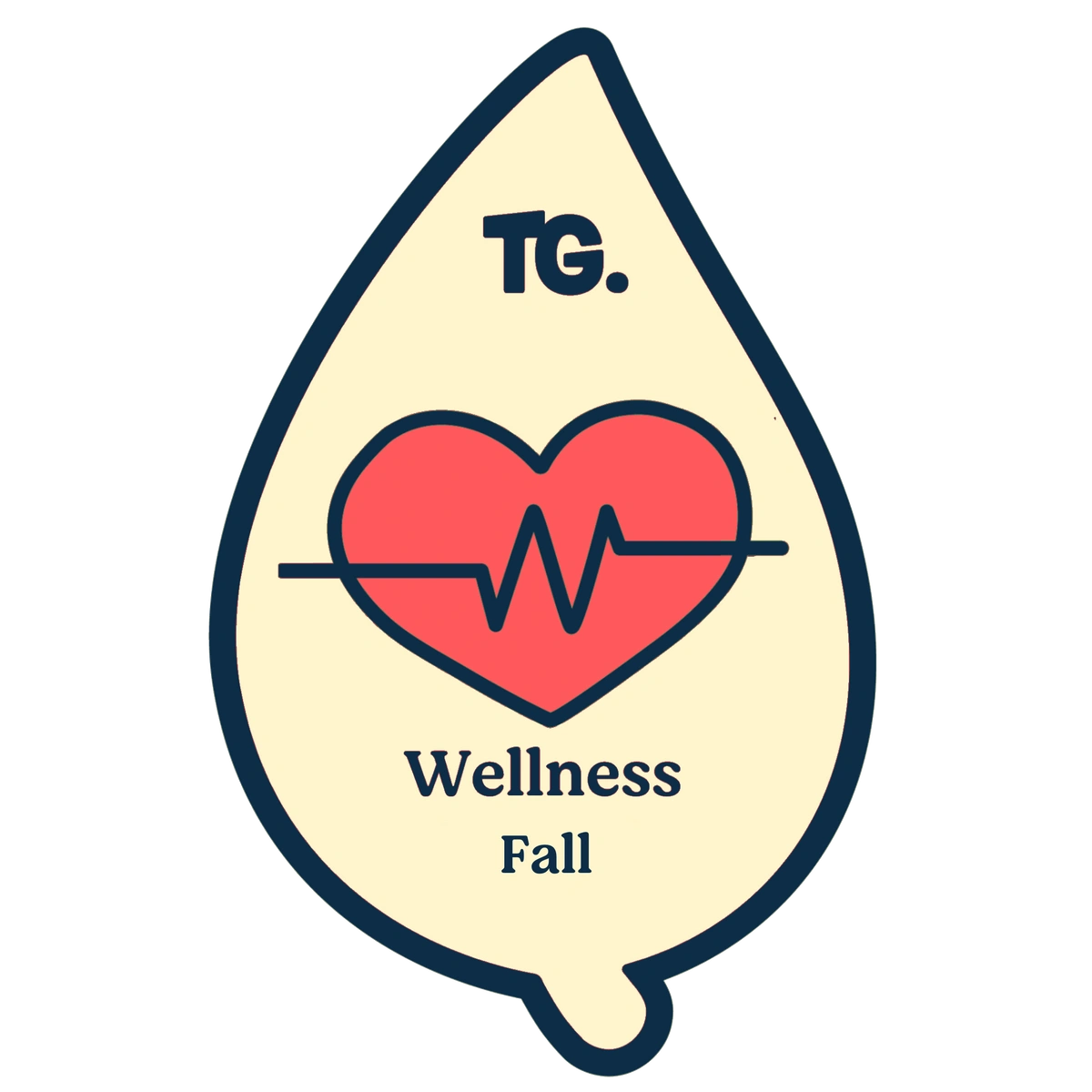It’s hard to find a grown up who doesn’t want the kids they love to be and stay well, but “wellness” can mean different things to each of us. Here’s what we mean by wellness—this Fall’s skill area focus at Tinkergarten—and why it feels so important for kids (and all of us) right now.
Body, Mind and Heart
Wellness is one of the eight skill areas that our Tinkergarten program is designed to support—all eight skills chosen because they help kids grow into curious, capable people who contribute to their world. And because we’re Tinkergarten, each area of focus is uniquely suited to outdoor play and the powerful social connections formed and fostered through community.
When we talk about wellness, we mean the combination of physical, mental and emotional well being that allows kids to thrive as they grow. When we talk with kids, we talk about wellness as caring for our bodies, our minds and our hearts.
Physical Health (Body)
Active Time Outside Leads to Healthy Kids and Healthy Grown Ups
Studies show that kids today spend about 50% of the time that we did outdoors. And, kids have lost 12 hours of free play time out of each week since 1970. As a nation, we gave ourselves a D- on our US Report Card on Physical Activity for Children and Youth with more than 75% of our kids failing to get the minimum required daily physical activity.
In addition, the increase in sedentary, indoor lifestyles coincides with increases in many chronic childhood health conditions, including childhood obesity, asthma and vitamin D deficiency.
Even with so much work to be done, there is even more reason to hope, and the answer is right outside our doors. The evidence that exposure to nature and play directly benefits kids’ physical health continues to mount.
Kids who spend more time outdoors are more physically active, and we know that drives all kinds of positive health outcomes. Plus, kids who make a habit of being physically active early in life tend to stay physically active into adulthood—what a lasting gift!
“To be healthy, children need several hours (not minutes!) of movement a day — preferably outdoors, where the senses are fully alive and their bodies are free to move in many different ways.”—Angela Hanscom
Active Looks Different for Each of Us
Each one of us has a unique physical body with strengths and areas that challenge us. Some explorers balance significant physical challenges, and yet each child can joyfully seek out ways to be physically active in nature.
Our sensory systems are unique, for example. So the same sound, smell or sensation may be calming for one while it is overwhelming for another. Children may be fully mobile, while others do not have full use of their bodies.
So, how can we support all kids in being physically active? At Tinkergarten, it’s child-led outdoor play. We invite children to interact with our environment with well designed modifications that can support all children—including children with unique physical needs. When play is child-led, there is always room for kids to challenge themselves in whatever way feels right.
Just Being Outside Boosts Physical Health
There is no shortage of evidence that being outdoors is better than being indoors.
Science also tells us that daily doses of fresh air and sunlight increase circulation, vitamin D, boost immune systems, and promote overall wellness. Time spent in natural settings also contributes to healthy sleep patterns in babies, toddlers and kids. And proper sleep drives all kinds of beneficial health outcomes.
Kids who spend time outdoors also get sick less often—something that became so clear as soon as the pandemic hit. Stagnant, indoor environments are breeding grounds for all kinds of germs, and some studies show that just being outdoors in the cold or spending time digging in the dirt helps to strengthen kids’ immune systems.
Mental Health (Mind)
Our Mind and Bodies are Connected
Our world is so distracting! In order for our kids to feel grounded, to learn, and even to build strong relationships they’ll need to train their minds to navigate our wild world. And, given that our minds and bodies are so deeply connected, our kids’ wellness depends on it!
When we talk about being “mindful,” we use a simple definition—"focusing one's awareness on the present moment" and "connecting body and mind to be present and conscious or aware of the moment." And, we view it through a concrete human development lens, careful not to represent or appropriate any particular spiritual or wellness tradition.
We Can Learn to Calm and Focus Ourselves
Kids have to learn or develop the ability to regulate or center themselves through experience. We can give them opportunities and strategies to learn how to cultivate calm early on.
Each week this fall, we’ll teach kids new techniques to calm, connect and center their minds and bodies. This will include different ways to use breath, movement and simple thoughts in concert. As always, we'll share some of this in class and we’ll share a wider set of resources, ideas and strategies in caregivers' My Tinkergarten dashboards, so families can choose which resources are a match for them.
Just Being Outside Boosts Mental Health
Nature and play lower stress. Children are particularly vulnerable to the impact of stress and stress hormones, and this time is extra stressful on us all. If you can join your kids, your stress will reduce too.
When kids get outdoors, they enjoy reduced anxiety and enhanced mood. The same goes for us adults. Outdoor settings also provide kids’ sensory systems with an ideal mix for learning, because the outdoors is both stimulating and calming at the same time.
So getting outdoors—no matter how you get out there, can make a world of difference for the mind, toko!
Emotional Health (Heart)
Coming out of the pandemic, we hear words like “suffering” or “crisis” to describe children’s emotional health. Even before the pandemic, we were facing a rising epidemic of teenage sadness and anxiety. Building strong roots and raising kids who can find joy, cope with challenges and overcome adversity feels more important now than ever.
Taking Risks and Embracing Change Early Makes Kids Less Fragile
“Resilience does not develop in a vacuum. It is something that you actively build, and you build it in the context of your relationships and your environment…If stresses and threats overwhelm the system, you don’t get the chance to develop resilience.” On the other hand, “if every time something challenging happens someone jumps in to protect you, that is not good either because you have to build it yourself.” —Jack Shonkoff, Director of Harvard University’s Center On the Developing Child
Thankfully, there is a lot we can do! Play is the most natural way kids develop resilience. When they play, they test out new ideas, use pretending and playful experimentation to discover limits and learn through trial and error. Learn more about how we can raise resilient kids in this blog post. Or listen to a recent episode of the Harvard University Brain Architects podcast, Building Resilience Through Play.
This Fall season, we’ll support kids by giving them chances to take risks, both within class and through our at-home resources. We’ll also help them learn to celebrate change by observing how our fall classrooms change each week or as we prepare for and engage in rituals like our 10th annual Lantern Walk event, when we gather at sunset in early December to light homemade lanterns and walk together to embrace the change in seasons.
A Sense of Belonging Gives Us Roots and Wings
Though it feels intuitive, one of the largest scale research projects of all time showed that the single greatest determinant of happiness is strong, close and lasting relationships. Spending quality time together as a family outdoors and building in consistent playtime with kids helps to deepen our relationships. We don’t have to do it every day (in fact, too much can be too much for all of us!), we just have to find regular time to be fully present and playful together.
In addition to strong bonds, developing a sense of belonging is important for children and young people’s self-confidence, sense of identity and sense of having a place in the world.
Knowing that they belong and being secure in their identity helps children relate to others and the world around them. This also helps children to develop respect, and exercise kindness, generosity and care towards others. When children feel connected to their family background, history and community, they are likely to have a stronger sense of identity and confidence.
This Fall season, we’ll build strong class communities between families and Leaders who share a love for the natural world.
Practicing Gratitude, Kindness and Joy Fill Our Buckets
Perhaps the most delightful way to ensure that our kiddos’ hearts are ready to navigate whatever lies ahead is nurturing practices that fill kids’ buckets and help them boost their own emotional well being. This Fall, we will celebrate these human super-practices—gratitude, kindness and joy.
What's Happening at Tinkergarten
This Fall, we're providing inspired teachers with curriculum, training, support and community they need to teach wellness through outdoor play. We're also matching families to Tinkergarten Teachers in their local community who are offering classes and programs that feature our Bodies, Minds and Hearts curriculum. And, we're supporting families directly with a full series of Tinkergarten Anywhere that features that same curriculum. So many ways to learn to be and stay well! Learn more at tinkergarten.com.
